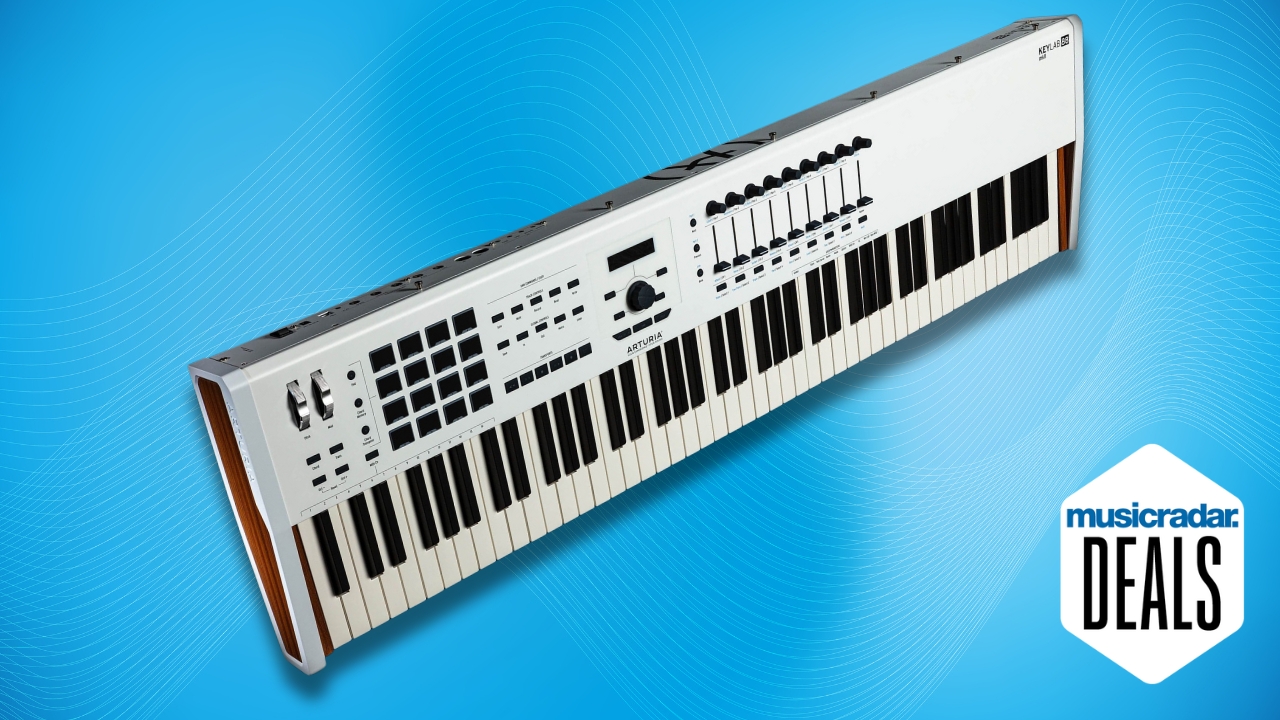Classic album - Quantic on Mishaps Happening: "I was entirely working with Logic plugins. I didn’t have any third-party stuff."
Quantic takes us through his 2004 LP track by track
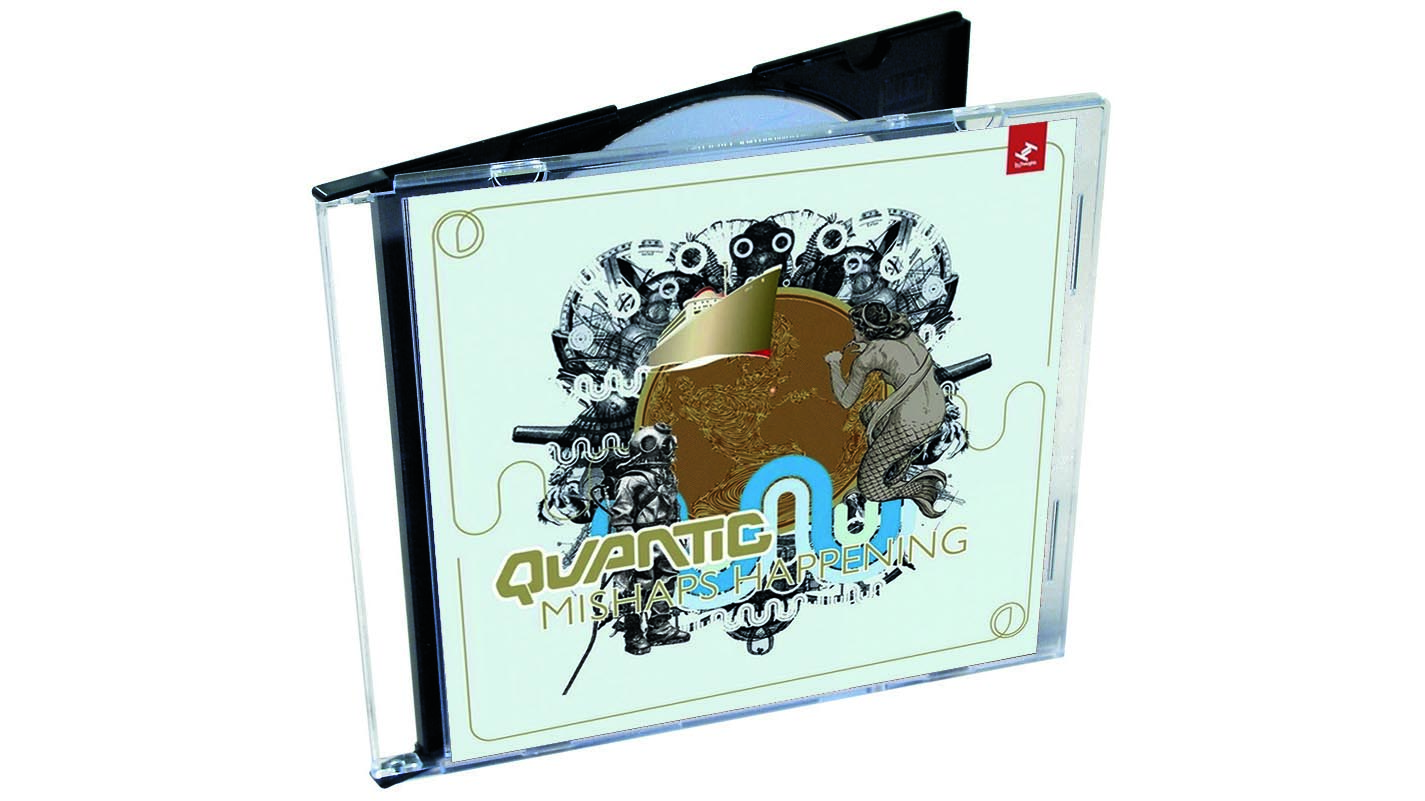
International super producer, DJ, and label boss Will Holland really cranked up the dial for his third album as Quantic.
Recent additions to his record collection had inspired him to experiment with wilder rhythms, and incorporate more musicality to his beats than ever before.
“I’d started collecting Afro Latin, Caribbean, spiritual jazz and Afrobeat,” he says. “They were big influences, and made me change things up a lot more, rhythmically.
“I’d made Apricot Morning - the second Quantic record, which started to encompass sampled elements and live compositions, with vocalists, and jazz harmonies. But that was the prototype. And now I was doing it proper.”
With this new blueprint and zeal, Mishaps Happening became the best version yet of the Quantic ideal - to find that perfect balance between sampling and live music.
“I was really trying to get a... I don’t want to say ‘fusion’,” he says. “Because I don’t like that word. But, more of a meeting point between those two worlds.”
He brought in players to handle live strings, flutes, vibraphones, and organs. While picking up the sax, bass, and guitar himself. And a move from Fruity Loops to the far more sophisticated world of Logic meant his tracks got bigger in scope, and easier to assemble.
Get the MusicRadar Newsletter
Want all the hottest music and gear news, reviews, deals, features and more, direct to your inbox? Sign up here.
“That upgrade in software let me make far more complicated arrangements,” he says. “As well as being able to quickly bring all the musical elements together.”
Holland was going the extra mile when it came to recruiting guest vocalists for the album, too.
Besides UK soul icon Alice Russell, he tracked down the legendary funk diva Spanky Wilson in LA. Headed to Toulouse to record rapper Trinidad. Then met up with East Nigerian conga legend, Sonny Akpan, in London.
“This album was the first time I went out to record,” he says. “I felt a lot of confidence in this record, doing that. Just getting to collaborate with people outside of my home.
“I think that led me to what I do now, just rampaging across the world to work with people!”
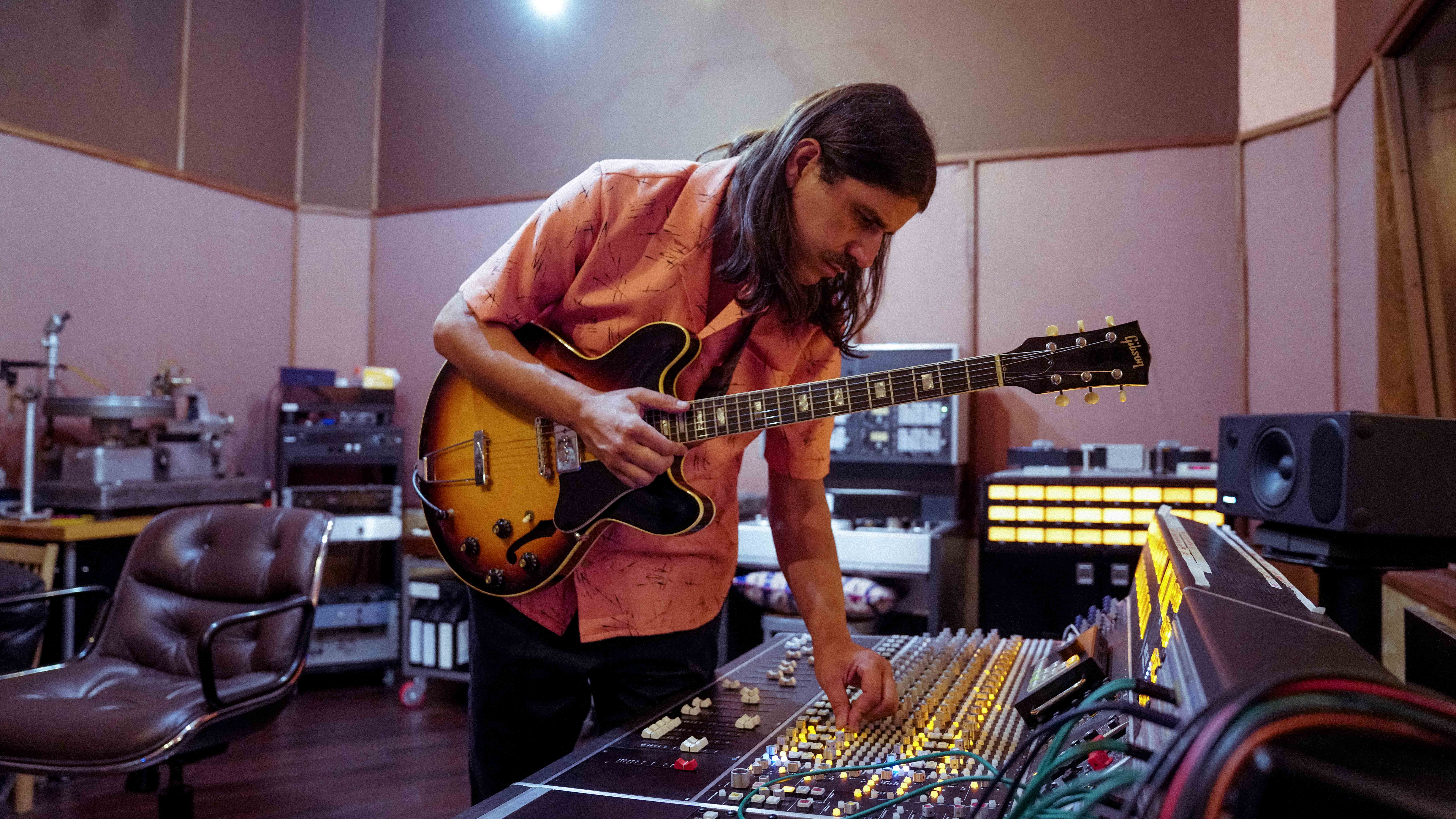
Mishaps Happening track by track with Will Holland
Mishaps Happening
“This was the first thing I wrote for the record. It started with a bossa nova loop, then I added guitar and bass. There’s an A and a B section. Then I recorded a guitar lick, which is the main melody.
“Then Alice Russell, the singer extraordinaire, who was also living in Brighton at the time, came over and doubled the guitar lines with vocals.
“We were getting into a lot of Brazilian music where they have that style. People like Baden Powell, and Flora Purim. Stuff where there’s a scat element with the guitar.
“The concept for this song was to have ‘India versus Brazil’, with those musical styles facing off at the end. Dunno if I pulled it off [laughs].”
Use What You Got
“This features Sonny Akpan from [Afrobeat legends] the Funkees. I saw them play live and it really got me into West African music. Sonny was their main percussion driving force guy.
“I went up to London and we set up in his basement. I laid the guitar and bass down. Then his congas. He also wrote some words down, which is where the ‘Use What You Got’ stuff came from.
“He was very methodical, and I was just taking his lead. He really knew how to put together rhythms.
“If you listen to the track it’s not him doing conga solos. He’s just holding it down in an amazing way.
“You can hear that it’s really roomy. You can tell it’s just one mic in a basement in East London.”
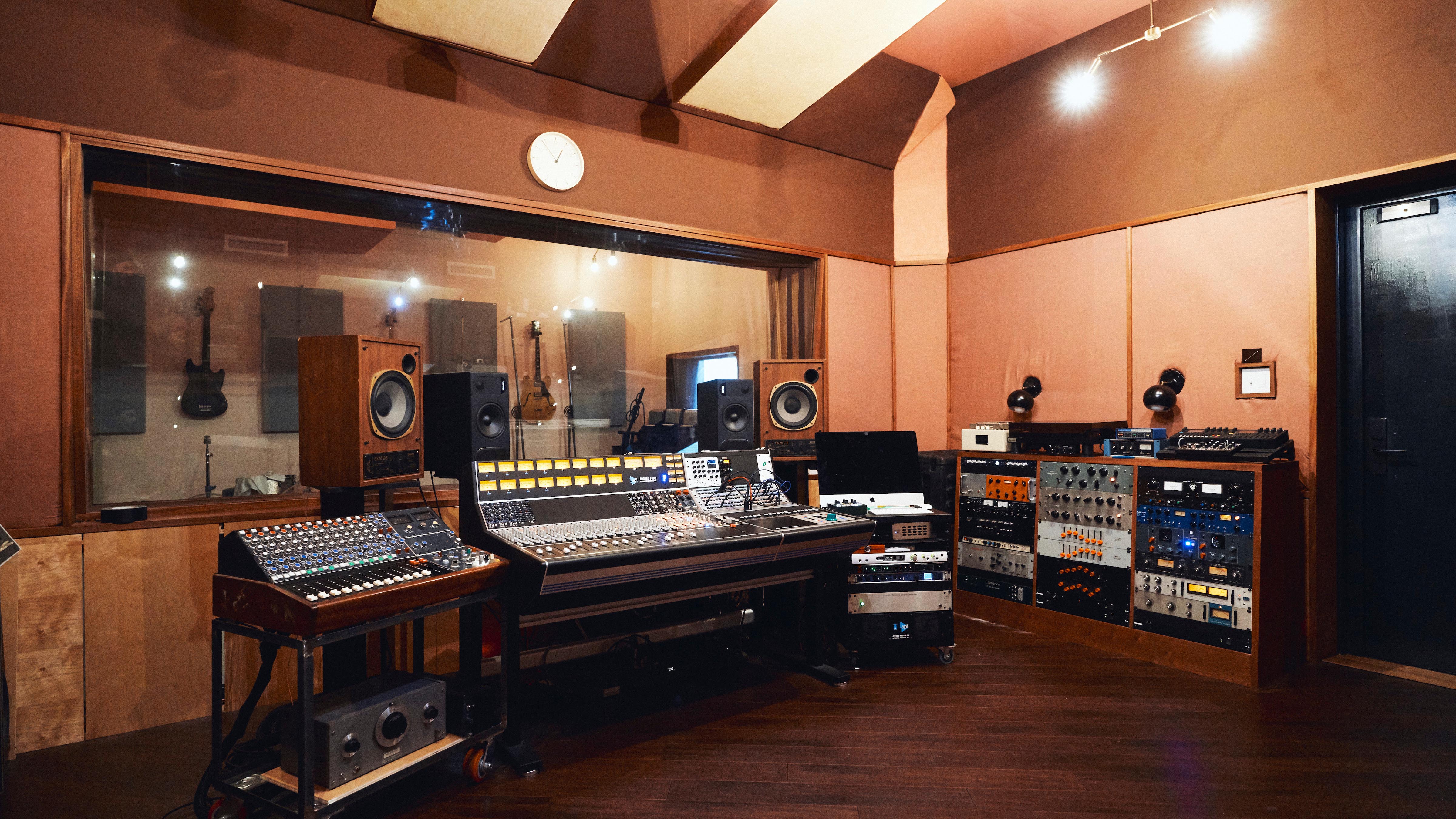
Sound Of Everything
“Alice Russell again. And Dave Woodhouse on keys. He sadly passed away a few years ago. He was a friend of mine from Kidderminster college, where I went for sound engineering.
“We recorded his Rhodes - not a real one. To be honest I was entirely working with Logic plugins. I didn’t have any third-party stuff. And all the drums and the beat programming were done in ReCycle. You’d put in a break and chop it up into single hits.
“Conceptually I wrote it for Alice, and it was based around spiritual jazz like Sun Ra. I’d been getting into that and Pharoah Sanders.
“This also has piano recorded in my mum’s house. And I played sax on this, which I don’t do anymore.”
En Focus
“This features a rapper called Trinidad, who was based outta Toulouse. He’d been on a Pilooski track [‘Systeme Piloo’], and I really liked his style, so went over there to record him.
“I didn’t really know about mics and stuff [laughs]. I would love to say I had a vintage Neumann U47 and had a secret echo chamber, but it was always quite simple.
“This was on an Afrobeat tip. I’m playing sax, guitar, bass. The rest is samples, and Trinidad rapping.
“I never worked with him again. We kept in contact, but I think he kinda retired.”
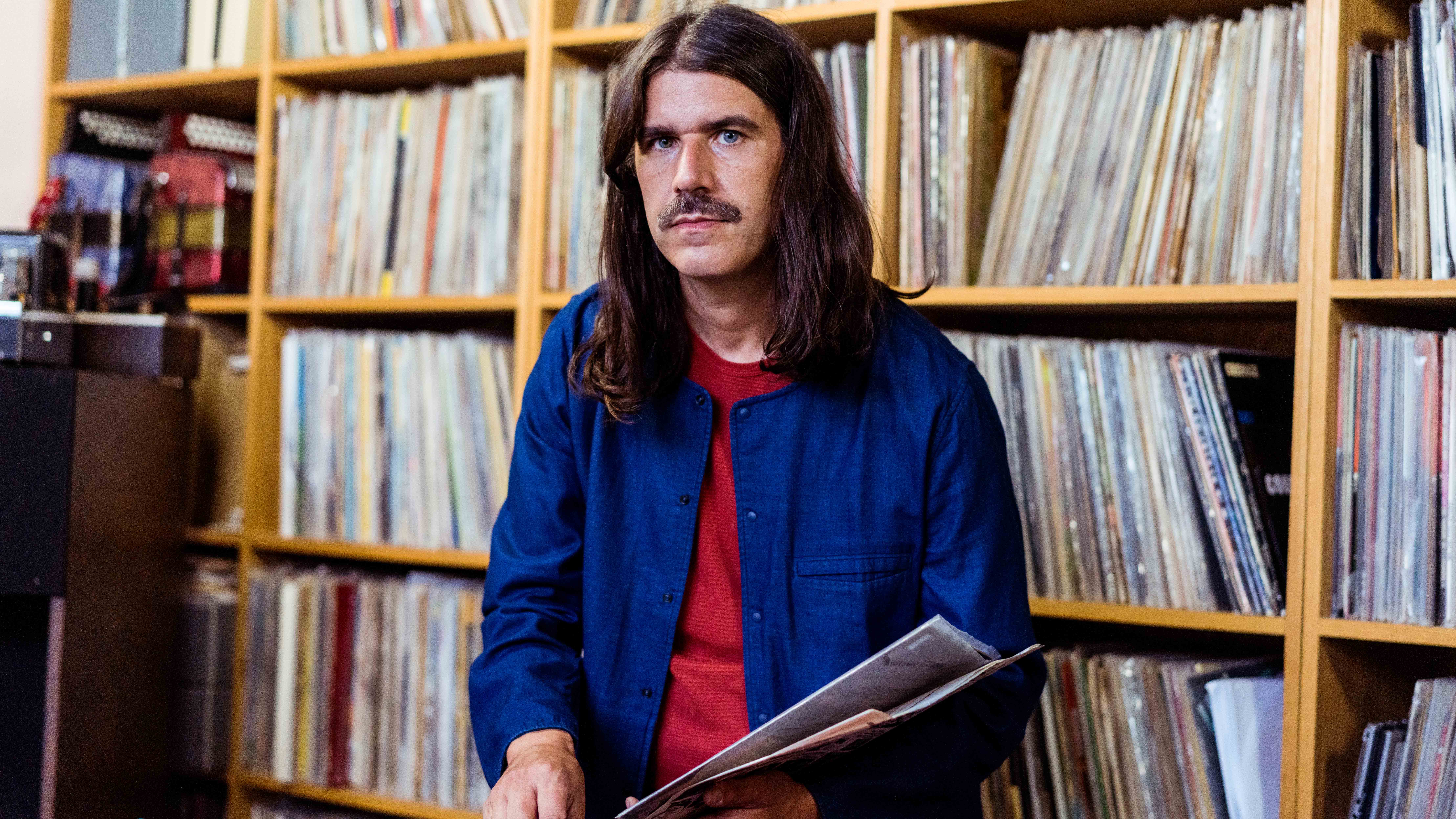
Trees And Sea
“This is the track where I began to share a studio in Brighton on Jew Street with the Lo Fidelity Allstars.
“It was like a rabbit warren of little rooms that weren’t insulated properly, and very sweaty. I rented a producer room, and constantly had people banging from upstairs. The soundproofing was terrible. It was just like an office building [laughs].
“It was dark and dank, and a lot of music came out of there. From me and the Lo Fi’s, and Si Little, who produced under the name Hardkandy. He did Rhodes on this track, too.
“A lot of these instrumental tracks are on a spacey, futuristic tip. A lot of synth pads. I was just trying at the time to experiment with more future-looking break-based stuff.”
Angels And Albatrosses
“This has two segments. The first is almost an intro-y motif. I play some guitar and piano on it. And I think there’s some bassoon in there. [Listens to the track] There is! Cool.
“It’s a very vibey song. John Hughes plays flute on this. He’s a really talented singer from Worcestershire, where I was from. He came down to Brighton and we made music. I actually lived with him at one point.
“I remember recording cymbals on this. The beats are kind of programmed, and then the ride is side-chained to the kick and snare. I put the ride through a rubbish Peavey guitar amplifier. It gave me a phaser effect. I guess I was trying to get double-tracking.”

Furthest Moment
“This is built for the dancefloor. It’s the era where we’re all playing out a lot of broken beat. It sits a little bit with that. I like this track.
“On this record I used a lot of percussion loops. I would scoop the low end out of them and keep a high pass on them. I liked that energy. Especially when you looped it with some one-hit drums beneath it.
“If you had the one hits on their own it would sound very synthetic, but having that juxtaposition between the live stuff tickled the ears a little bit with the high end. It works well on this.
“There’s a pad sound all the way through. It’s all samples, I think.”
Don’t Joke With A Hungry Man
“This was the first thing I wrote for [soul legend] Spanky Wilson. I’ve always been into buying 45s, and there was one song by her called You. It was always in my record box.
“So, I reached out to her, and invited her to Brighton. I was this strange, sheepish, English guy. Not really having a clue how to produce a singer. I wrote the song for her and was just really happy she was into it.
“I recorded the beats and guitar in Brighton. Then Corey Mwamba added some amazing vibraphone. Then there was some strings on top.
“The title came from a time I was snowboarding with some German friends and one of us was just really ‘hangry’ [laughs].”
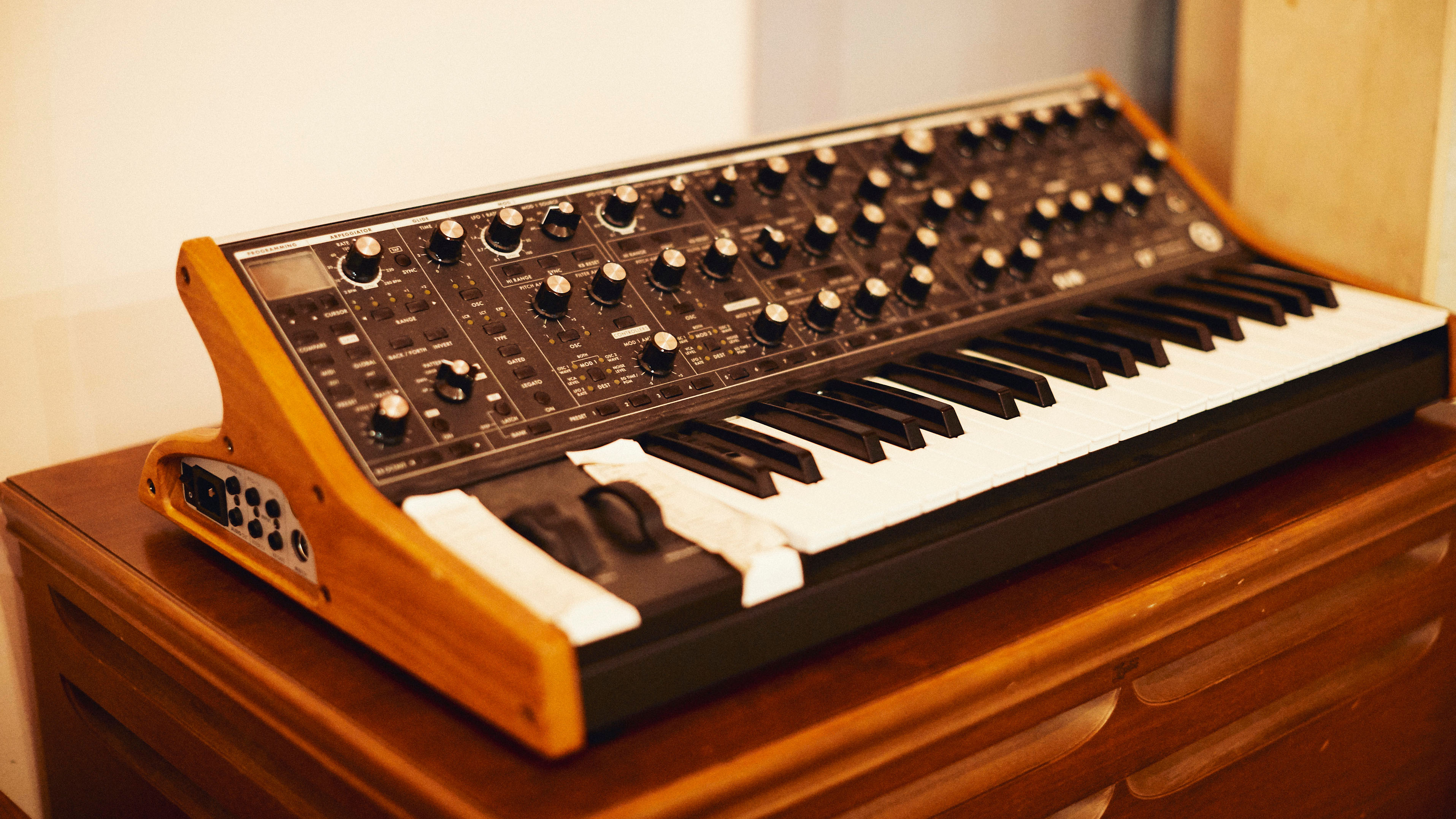
Prelude To Happening
“The motif on this was a Brazilian vibe. I really liked the lilting, melancholic guitar sounds they had. That MPB and bossa stuff. I wanted to add a more broken element of beat production to that.
“It’s quite jazzy. Antonia Pheulatos recorded some strings. And Alice Russell sang some great choral-style stuff as well.
“It was a dancefloor tune. It’s something that has a lot of bass energy and sounded good in the club, but also has a strong melancholic, yearning element to it. It was a bit sad.
“I really liked that. I was getting more into that. Adding that top layer of emotional shit to the bass drive. Kinda got a tear in your eye, stuff, but still dancing.”
When You’re Through
“Spanky Wilson again. This is like a Part 2. If she was coming over I couldn’t just get her on one track.
“This has more of a JB’s vibe to it. I think I was trying to do a Lyn Collins-esque thing. It has a soul revue groove. By this time I was in full swing with the Quantic Soul Orchestra, so getting more into this funk/R&B stuff.
“Some of this record stands up. I’m not sure if this song, production-wise, does. It’s a bit ‘breaky’.
“If I had the parts I’d do something different with it today. Thing is I don’t have any of the stems for any of this album. I didn’t even think about saving them.”
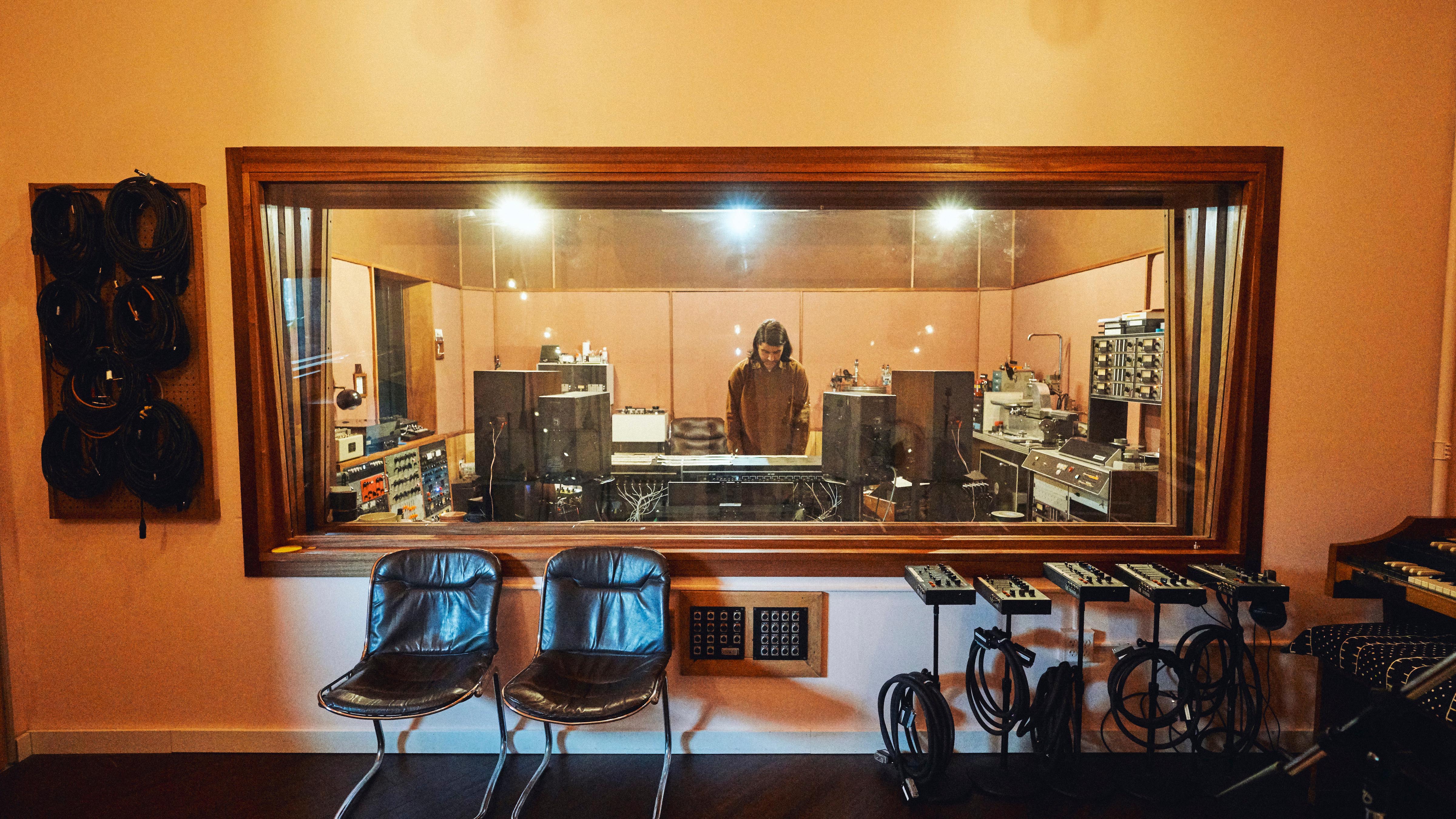
Perception
“It’s probably the only drum & bass track that I released. This has a lot of samples in. Some guitar on it. Then I took that ‘mummy-daddy’ drum-roll intro.
“It is what it is. Quite fast isn’t it? Christ! How did you dance to it?
“I remember it working quite well at the time. There was a Tru Thoughts club night in Brighton called phonic:hoop that it was played in. Aside from that, I don’t know if it got played out a lot.
“Back then I was quite outside the mainstream dance music scene. I was in a pocket, really, in Brighton. And this stuff was in the shadows.”
So Long
“This is a song that Alice Russell and I wrote together. It starts off with the funk/Afrobeat guitar ideas, then I think it has an influence of bands like Fat Freddy’s Drop, with that reggae influence.
“Me and Alice were touring a lot, and had been to New Zealand, where they’re from.
“My dad plays banjo on this. I sent it to him in Wales and he recorded that.
“It’s a long track too, man. It’s like seven minutes. It’s cool, too, that Tru Thoughts allowed me to have these long tracks. There wasn’t really an A&R push in order to get things shortened.
“Did the album do well for them? I dunno, dude [laughs]. They asked me to do another one, so…”
In the studio with Will Holland
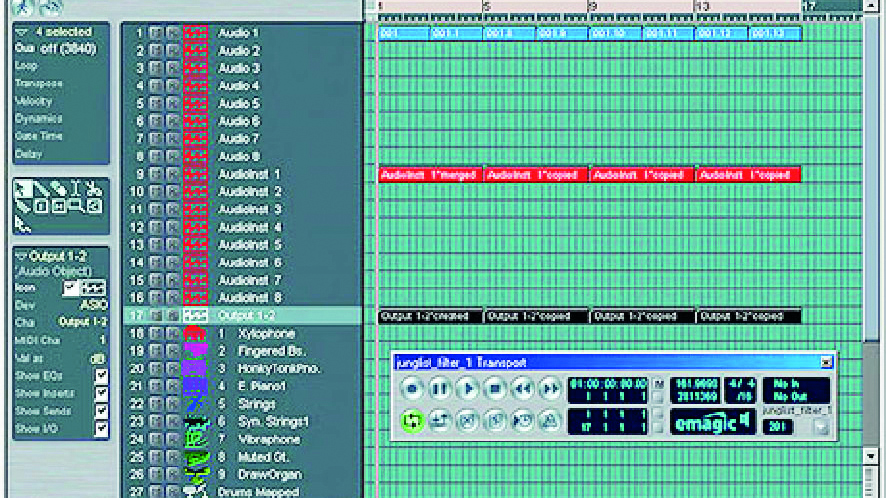
“Most of this record was made in my bedroom [in Brighton]. The setup would have been a PC and a soundcard, running Logic, when it was Emagic. I just used all the Logic plugins. I’d sample a lot of percussion off charity shop records, and program drums around them.
“I’d just get loops going, and start writing to them. Chopping up stuff with ReCycle. Get the groove together and go from there with various instruments, like a bass guitar, guitar, and then some percussion. I played some saxophone and we had other players in for organs and vibraphones, and some string players.
“I had a terrible Peavey bass head that had built-in phaser and reverb. I used that. It had a direct out. It was like the pre-amp for the guitar.
“Then I had a Stagg large condenser microphone, and then a couple of dynamic mics, like SM58s. Then everything else was direct.
“I used a couple of other studios, and went to London and France to record too.”


Computer Music magazine is the world’s best selling publication dedicated solely to making great music with your Mac or PC computer. Each issue it brings its lucky readers the best in cutting-edge tutorials, need-to-know, expert software reviews and even all the tools you actually need to make great music today, courtesy of our legendary CM Plugin Suite.
"Reggae is more freeform than the blues. But more important, reggae is for everyone": Bob Marley and the Wailers' Catch a Fire, track-by-track
“Part of a beautiful American tradition”: A music theory expert explains the country roots of Beyoncé’s Texas Hold ‘Em, and why it also owes a debt to the blues










